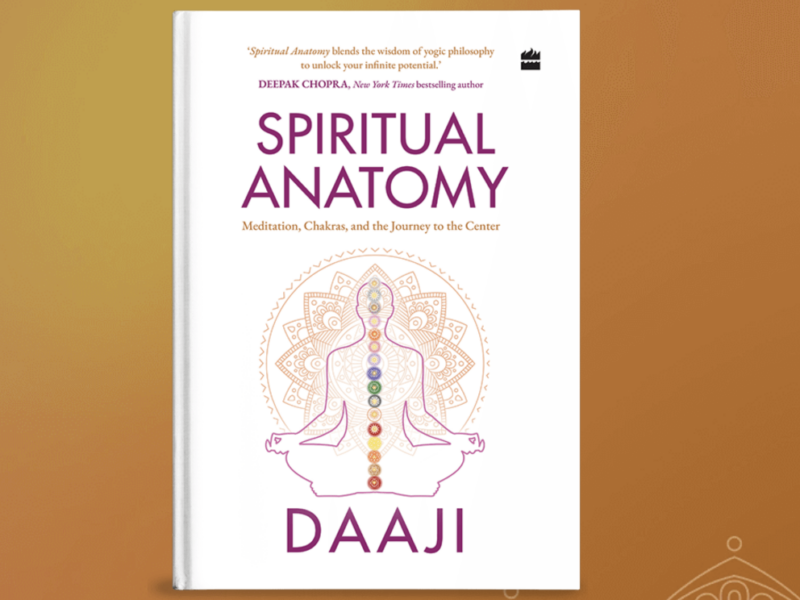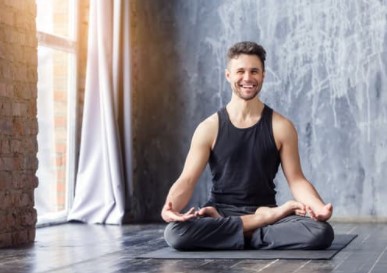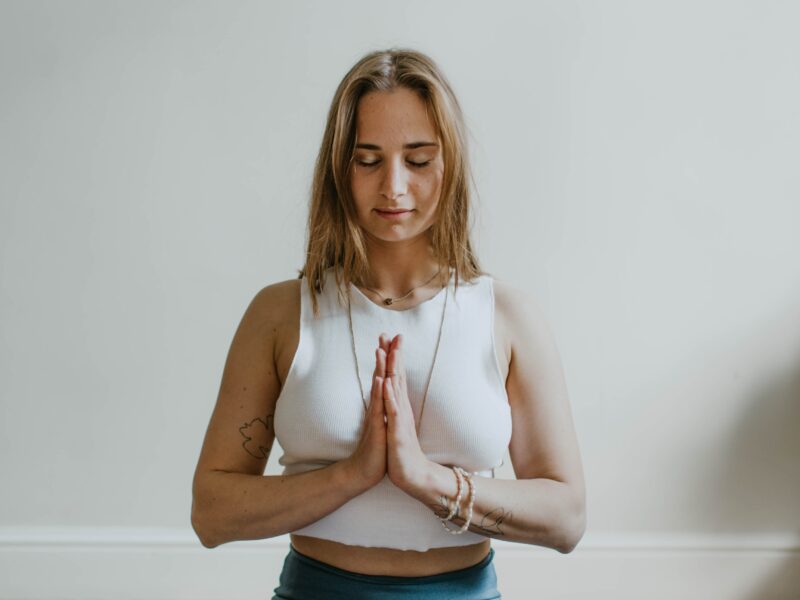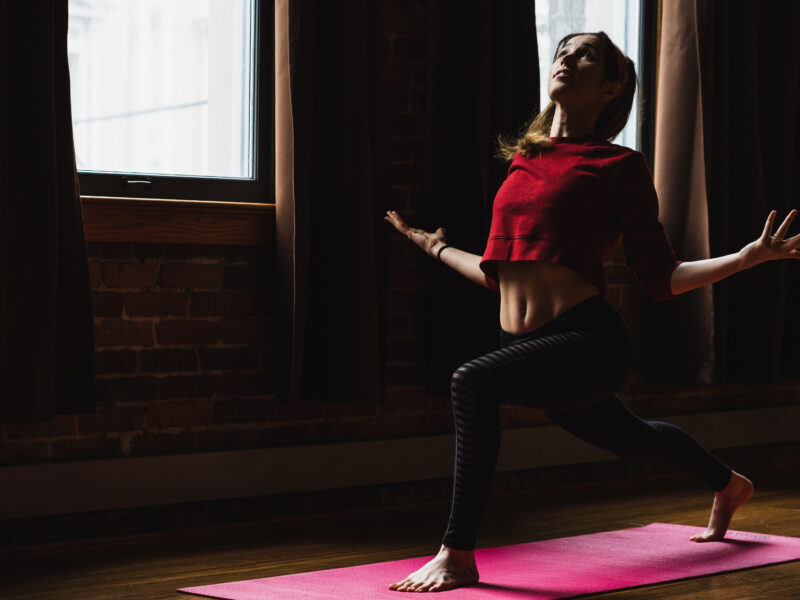It is said that all stress arises from within, and all disease originates from a state of inner disharmony. Meditation, a scientific technique that enables you to take control of your own mind, releases stress and produces deep rest— thereby activating the body’s own healing forces and significantly improving our health level.

By Vikas Malkani
Research states that up to 70% of physical diseases are psychosomatic, that is, they originate in the mind, triggered by negative emotions such as fear, insecurity, worry, anger and jealousy. Drugs merely suppress the symptoms and often do nothing to remove the cause of the problem. Meditation is an excellent complement to conventional medicine or surgery; and it has been noted that patients who meditate, heal faster.
Meditation is also the easiest and fastest way to understand yourself. It takes you to a higher level of self-understanding, where you can see clearly how you create your own life experience. When the nervous system is rested via meditation, your brain works at peak efficiency. This means you display more intelligence, more creativity and more feelings.
Meditation is the best investment you can make in yourself, as it promises multi-faceted returns. It does not mean withdrawing from the mainstream of life—on the contrary, meditation allows you to enjoy life to the fullest by bringing out your full potential. You do not have to retreat to caves for your sessions—the same results are secured when you meditate in the comfort of your home.
Anyone can meditate. The state of total health, peace and happiness is already there -all you have to do is use a technique to arrive at it. The beauty of meditation is that it makes you happy inside, so your happiness is not dependent on external factors. And along with happiness, you gain freedom too. Once you start meditating, you become more peaceful, less reactive and more stable. Tense muscles, overexcited nerves and an overactive mind can drain our energy reserves.
Below are some well-known benefits of meditation:
Reduces Blood Pressure
The release of stress causes our muscles to relax, including the muscular walls of our blood vessels. This means more blood can pump through the vessels and there is less resistance to the overall flow, which lowers blood pressure and deters heart diseases.
Improves Sleep
When we meditate regularly, we tend to fall asleep quicker and our sleep is deeper. As a result, we wake up feeling fresh and more alive. We also feel more energetic and calmer throughout the day.
Balances the two Hemispheres of the Brain
Studies show that meditation has a balancing and harmonizing effect on the right and left hemispheres of the brain. Our left hemisphere controls our logical thinking, while the right side is responsible for feelings. Due to the fast-paced modern life many of us lead, we tend to operate more from the left hemisphere. Meditation allows us to have the right balance of logical analytical thought and emotional feelings.
Increases Blood Circulation
Relaxed blood vessels also enable increased blood flow to all body parts. Increased blood flow to the brain enables us to think more clearly and also helps to prevent strokes, while increased blood flow to the digestive system aids it to function better and improves our digestion.
Stimulates Hormones
Meditation stimulates our glands to produce more hormones, while also reducing the production of the body’s stress hormones. Studies show that hormone levels in meditators are similar to those in people up to ten years younger, which is one of the reasons why meditators look and feel younger.
Alleviates Health Problems
Meditation helps bring awareness and control over our thoughts, thereby allowing the body to heal. The mind is indeed more powerful than medicines.
Optimizes Brain Function
The practice of meditation has been shown to significantly correlate with increased efficiency in learning new concepts, higher verbal IQ, decreased neurotic behaviors, and increased neurological efficiency.
Five simple techniques of meditating anywhere, anytime:
1) Mindfulness: Give your full attention to the action you are involved in. Your mind should be totally absorbed in the action, without judgement.
2) Mantra: Many times during the day, reaffirm silently to yourself, “I am whole”, and as you do, feel the emotion of completeness.
3) Contemplation: Take a word or phrase, and contemplate deeply on its inner meaning and significance in your life.
4) Concentration: Put your full attention on any one place, colour or word, and do not allow it to move. If it shifts, simply bring it back and continue to be focused on a single point.
5) STOP! Many times in the day stay ‘Stop!’ to yourself. Become aware of your thought at that point of time, and simply watch it for a few seconds.
Tips for practising Meditation
• If you’re a beginner, get yourself a good teacher who you can connect with, and let this person guide you, correct you and allow wisdom to grow within.
• It is possible to meditate at any time, as long as you are not disturbed by external factors, and are not intoxicated.
• Practice regularly; at least once, ideally twice, a day (morning and evening).
• Quiet surroundings are obviously helpful to the meditative process. The outer harmony of nature furthers inner balance. At home, it is helpful to create a special place for meditation. Ask your family to cooperate with you by not disturbing your meditation.
• Freshen up and prepare for meditation. This dispels drowsiness and promotes a wakeful, energetic disposition.
• Sit with your spine straight, whether it is on a chair or on the floor.
• Begin by taking a few deep breaths, expelling all tensions in the body and concerns of the mind. Consciously relax your entire body, especially the chest and the facial muscles.
• Tell yourself, mentally or aloud, that for the duration of the meditation, nothing else matters.
• Now begin your meditation practice, whatever your technique may be. Don’t be concerned about distracting thoughts, sensations and emotions—neither welcome them nor repress them. Simply let them be and persist in your practice. Sooner or later your inner world will become calm.
• Don’t abandon your meditation at the first impulse to do so, stick with it for a while. Try to sit for at least fifteen minutes at the beginning, and after a few weeks of practice, for at least half an hour. You will learn to recognize that there is a natural ending to every meditation, where it seems appropriate to get up.
After your meditation is over, review the session and affirm its positive aspects. Throughout the day, try to recall the inner peace created by deep meditation.
This article was first published in the print edition of Yoga Journal Singapore, which is now Yogahood Online.






